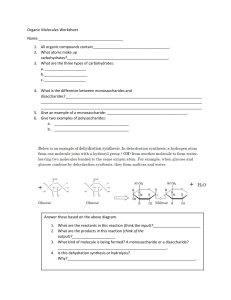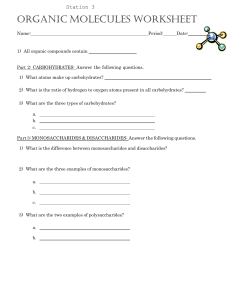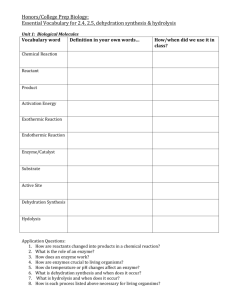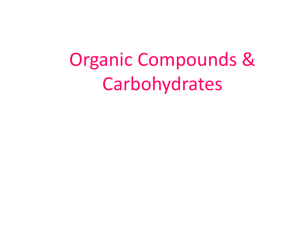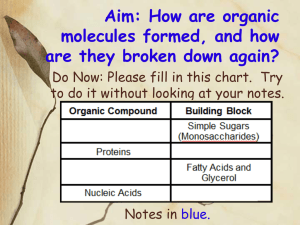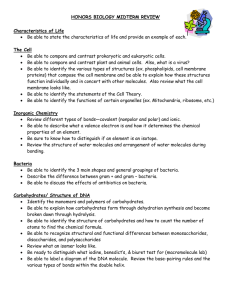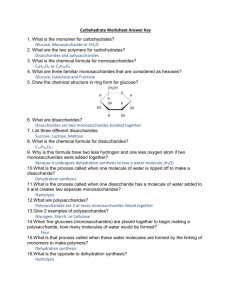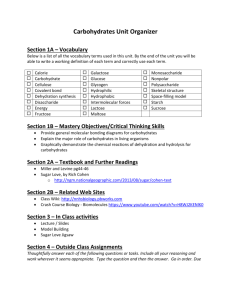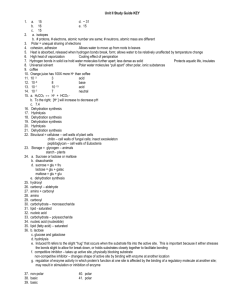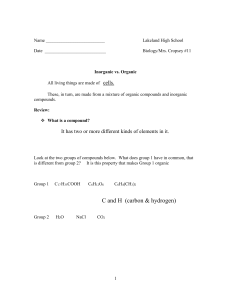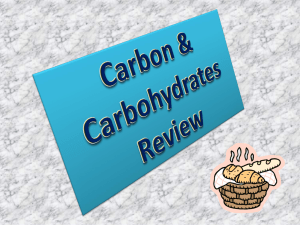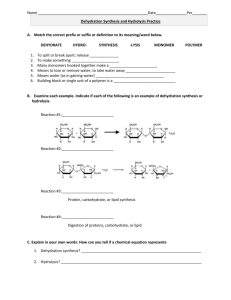Worksheet- Carbohydrates - Manhasset Public Schools
advertisement
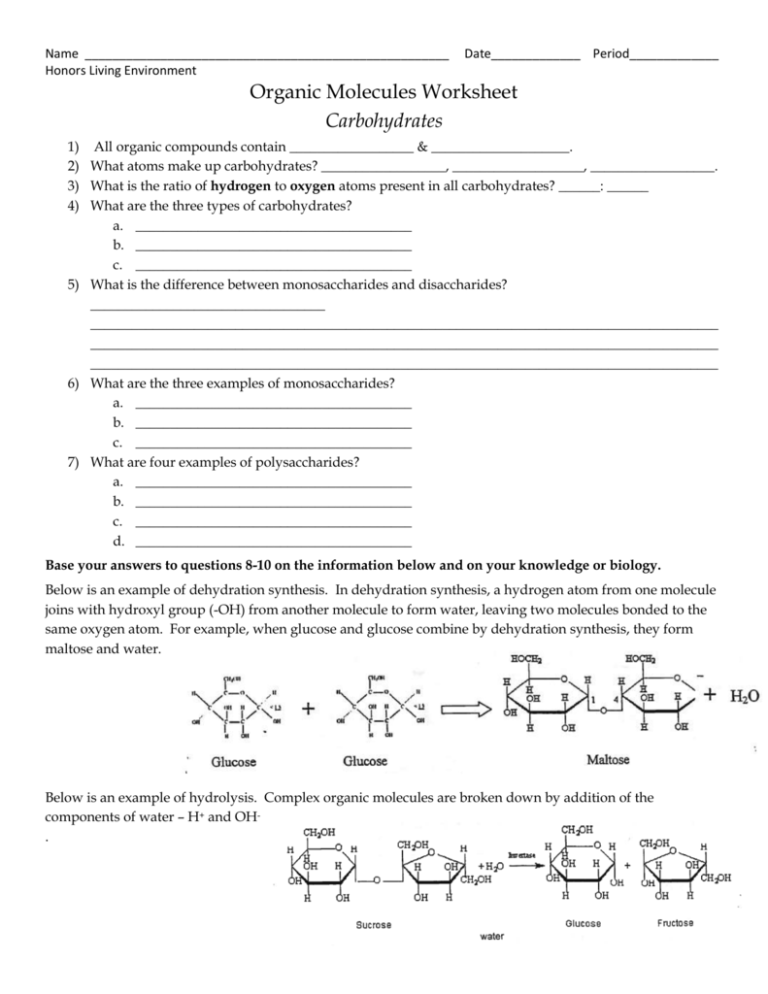
Name _____________________________________________________ Honors Living Environment Date_____________ Period_____________ Organic Molecules Worksheet Carbohydrates 1) All organic compounds contain __________________ & ____________________. 2) What atoms make up carbohydrates? __________________, ___________________, __________________. 3) What is the ratio of hydrogen to oxygen atoms present in all carbohydrates? ______: ______ 4) What are the three types of carbohydrates? a. ________________________________________ b. ________________________________________ c. ________________________________________ 5) What is the difference between monosaccharides and disaccharides? __________________________________ ___________________________________________________________________________________________ ___________________________________________________________________________________________ ___________________________________________________________________________________________ 6) What are the three examples of monosaccharides? a. ________________________________________ b. ________________________________________ c. ________________________________________ 7) What are four examples of polysaccharides? a. ________________________________________ b. ________________________________________ c. ________________________________________ d. ________________________________________ Base your answers to questions 8-10 on the information below and on your knowledge or biology. Below is an example of dehydration synthesis. In dehydration synthesis, a hydrogen atom from one molecule joins with hydroxyl group (-OH) from another molecule to form water, leaving two molecules bonded to the same oxygen atom. For example, when glucose and glucose combine by dehydration synthesis, they form maltose and water. Below is an example of hydrolysis. Complex organic molecules are broken down by addition of the components of water – H+ and OH. Name _____________________________________________________ Date_____________ Period_____________ Honors Living Environment 8) What are the products of the hydrolysis reaction? ______________________________________________ 9) What are the reactants of the dehydration synthesis reaction? ____________________________________ 10) How are the reactions in #8 and #9 related? ____________________________________________________ ___________________________________________________________________________________________ ___________________________________________________________________________________________ Base your answers to questions 12 &13 on the diagrams below and on your knowledge of biology. 11) Which reaction(s) is hydrolysis taking place? __________________________________________________ a. How do you know? __________________________________________________________________ _____________________________________________________________________________________ 12) Which reaction(s) is dehydration synthesis taking place in? ______________________________________ a. How do you know? __________________________________________________________________ _____________________________________________________________________________________ 13) What are polysaccharides? ___________________________________________________________________ ___________________________________________________________________________________________ ___________________________________________________________________________________________ 14) What substance would be the repeating unit that makes up glycogen? _____________________________ 15) Write each name or formula under the correct heading in the charts below. Use the following items: Sucrose Glucose Starch C6H12O6 Cellulose Maltose Fructose C12H22O11 Lactose Glycogen Galactose Disaccharide Monosaccharide a. a. b. b. c. c. d. d. Polysaccharide a. b. c.
